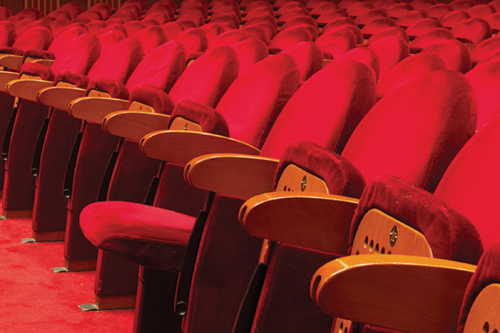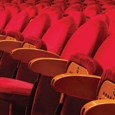
A Google search of the word audience renders up numerous pages of sites admonishing readers to Know Your Audience for successful public speaking, play writing, and just about anything else one could think of, yet very little is ever presented to music students during their college years on the subject of the audience. As my mother would have said, “It takes two to Tango,” and musicians do not perform in a vacuum – at least they shouldn’t have to. They play for the Audience.
The standard academic scenario portrays students laboring alone in a small cubicle for hours every day, honing their skills, learning the repertoire, and hoping that, when the time comes, they will be a smidgen better than everyone else and able to land the dream job that has been at the end of the rainbow since they were twelve. All of that preparation is done in a vacuum, with the exception of a weekly hour-long lesson with a teacher. Four years of undergraduate school and two to three years of graduate school equals approximately seven years of practicing in a tiny room for at least four hours a day – alone. This does not include those pre-college years, which are equally important. The rest of college time is spent in the rehearsals and classes the school requires (you could call this hoop jumping if you wish), but the major priority for music students is practice time – finding enough of it and still getting the class work done well enough to pass. Thousands of hours are spent alone. The audience is seldom mentioned and rarely encountered.
In an academic setting, audiences are made up of fellow students and teachers, perhaps a few locals from the community, but basically a pretty rarified bunch of listeners. They are in the know, which multiplies the pressure that performers feel, but they are also an audience unlike those that will be encountered post academia.
Does this mean that general non-academic audiences are less educated? Not necessarily, but their expectations are less stringent. They come to hear you play because they like music, know you, or just generally want to be entertained. I have always been mystified after attending concerts with my husband. Other than a failed attempt at piano lessons when he was ten, he is musically uneducated. He grew up in a family that played classical recordings at home (the 1812 Overture was a favorite), attended Ravinia concerts in the summer (more for the picnic on the lawn than for the music), and sang in the local church choir. However, they were not what musicians would call musically trained.
Yet when my husband and I leave a concert we have just heard, he offers his review of the musical offering, and he is always right on the money. He will comment that the second piece seemed boring or took too long, the soloist wasn’t at her best, and so forth. I have always said he has a great set of ears. Interestingly, my reaction is usually the same, but I have the training to know why.
This might suggest several things to musicians about their audiences and how they perceive performances:
1. Program music that an audience will enjoy.
2. Prepare to the best of your ability because if you do not, they will know it. They may not know why you seemed unfit for the job, but that is the impression they will get if you do not nail it, both emotionally and technically.
3. See audiences as part of the event. This is a big one; musicians often are not used to considering them as participatory, but they are, or at least they should be. After all, music must be heard to be appreciated.
You see, without the audience, we could all just go home. There would be no need for a concert or recital in the first place. We need the audience as much as they need us.






